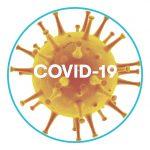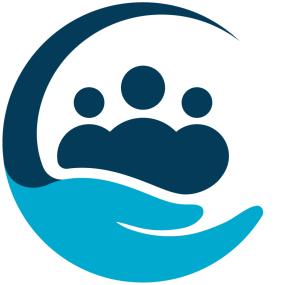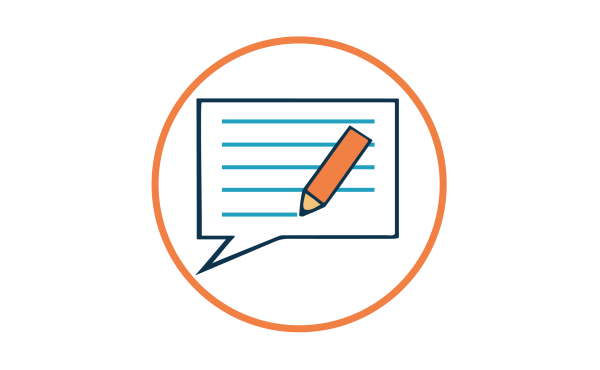5 Things I wish I’d known before COVID…. (pt. 4)

COVID-19 has presented challenges unlike anything we have faced before. In this blog, colleagues share their experiences by describing five things they wish they had known.

CMT trainee on redeployment in ICM, Yorkshire & Humber.
I started my anaesthetic training in February this year. I was two months into my novice period when I was taken away from theatres and redeployed to help cover intensive care. These are 5 things I wish I had known before starting to look after Covid-19 patients!
You can be helpful without being a fully trained intensivist. My biggest fear with starting work on ICU was that I was going to be a hinderance rather than a help. I have had some experience in ICU as an FY2, but did not think this would be enough to make me useful during this pandemic. In a time when there are so many people working in ICU that might never have previously, any experience can make a difference. I have helped with clinical and non-clinical skills, from putting in lines and clerking to rolling patients and getting them onto bedpans. I remember working with an endoscopy nurse and an ODP to help get a patient on CPAP sat up in bed and with a tighter seal on their mask, while the ICU nurse was busy helping to stabilise a much sicker patient.
We are all pulling together and helping each other as one big team. There is such a large mix of skills, knowledge and experience on ICU at the moment and I think it is important to look at this as a positive. So many members of staff have stepped outside of their comfort zone to help. Everyone is appreciated and even though I am in the early stages of my anaesthetic / ICU career, I can be a part of this team.
Families will be kind, thoughtful and appreciative of your help. On our ICU, we decided that a doctor would call the family once a day to provide an update (or more if there was any significant change in the clinical picture). Initially no family were able to visit the hospital – though now there are changes to this in exceptional circumstances – and so this one call would be the only contact family would have with their loved ones, and the team caring for them. When we discussed this, I was worried that families wouldn’t be able to accept this very limited contact. Personally, if one of my loved ones was critically ill in hospital, I know I would want to be at their side or be able to call for an update whenever I needed one. I expected that we would have a lot of angry relatives and would have difficult and emotionally draining conversations over the phone every day.
I could not have been more wrong about this. The relatives I have spoken to have been grateful for every conversation we have with them. They have all understood and accepted that they can’t come into hospital and that due to time pressures we can only speak to them once a day. I can’t remember a single conversation where a family member hasn’t thanked me for calling, for my help, and also asked if I was doing okay. It has been a genuine pleasure getting to know my patients’ family members.
The pandemic will be a marathon, not a sprint. We spoke about this in the days leading up to the first few cases in our hospital, but I don’t think it quite rung true. I had prepared myself for a few weeks of horror before hoping life at work would then get back to normal. However, it seems as though we haven’t quite hit breaking point (thankfully) like I feared; but things are going to take far longer to get back to normal. Looking ahead can at times feel emotionally challenging and that there isn’t a light at the end of the tunnel. I am now having to change my attitude towards this pandemic and accept the uncertainty that lay ahead over the coming months.
It’s normal to feel like this isn’t normal. I am very lucky to be surrounded by a team of superb intensivists, trainees, nurses, physios and non-clinical staff. However as we started preparing for Covid-19 this made me feel lost and alone at times. These people – most with far more experience than me – were staying calm, organising teaching and simulation sessions and seemed to be going about their lives as normal. On the other hand I was worrying about how my life both at work and home was about to change. I worried for my family, for my partner back home and my own physical and mental health. At home I didn’t know what to do with myself. I found myself locked into news channels or googling anything and everything about Covid-19; reading conflicting information every few days from any source I could find.
With hindsight, I now know that I wasn’t alone in this. Others may not have reacted to the impending pandemic in the same way I did, but no one really knew what was coming. This was new for us all. The more I have spoken to colleagues, the more I appreciate that we are all in this together. Accepting that this is something out of the ordinary has helped me to get on with the job at hand.
Celebrate the victories. A few days prior to being asked to write this blog, a video appeared on our hospital’s Facebook page – from the first ventilated patient to be discharged home. He was sat at home with his dog on his lap. While he was intubated and ventilated, I had spoken to his wife at home on several occasions, and she had told me we needed to get him back home to his dog.
Seeing that video has given me a second wind in this pandemic. We have probably all seen viral videos of patients being discharged home, with staff clapping them down the hospital corridors; but this one felt so close to home. I had seen this man at his lowest points in hospital, but here he was just a few weeks later back at home with his family and his dog.
At times it has felt like an uphill battle. Patients are spending a long time on ventilators and progress can be painfully slow. Some days it has felt like we aren’t getting anywhere, or worse – that patients have been taking backward steps. Remembering our wins keeps us focused. It helps to remind us that there are success stories, that we aren’t fighting a losing battle and we can make a difference.

Foundation Year 1 Doctor, Surrey.
The importance of a good death – I believe a good death is vastly decided by the experience of those who are left behind. They will hold onto each and every moment that led to their beloved’s final one. Unfortunately, these families are not able to have any of those moments now, which will make the grief so much harder to bear. For them and us.
The patient’s family – While we were so focussed on preparing how to save lives, we neglected to think of those at home waiting to hear anything. We’ve needed to hastily create family liaison teams, safe ways for family to send letters to put at the bedside and bought tablets for videocalls. Unfortunately, these will never be able to replace holding their hand.
Hierarchy – It is not as essential as it has been made out to be. While it is critical to have the most experienced members to take on the more complex and to decide the final plan; this does not mean that the less experienced have nothing to offer to the management and the team.
Team – Junior doctors are rotated so often that it is not a surprise to feel separate from the team and we accept this. We accepted not having our names known. We accepted being viewed as service provision only. One colleague was asked to step out of a ward group picture for the wall because they were ‘going to leave eventually’. Being lost between shift patterns and working with new people each day meant that stress would build up and no one would notice. The COVID rotas and disruption to pre-existing in-groups have allowed for the comradery to return and with it, real team work that I never knew I needed.
What it means to be a ‘hero’ – I have always considered what we do to be incredible. We run to the chaos willingly every day. However, this now brings us and our families great personal risk and yet we still do it. Although I would consider this heroic for want of a better term, I do not like it. The idea of a hero implies that if we were to suffer and die on ‘the frontline’, it is for the greater good, necessary even – a martyr. It is easy to forget that dying to help others is not what we signed up for, it is not inevitable and should not be accepted at any cost. The first thing you should ask yourself at an arrest – is it safe to approach?

Specialist Pharmacist (Critical Care and Burns), St Helens and Knowsley Teaching Hospitals NHS Trust.
What is the correct approach for thromboprophylaxis? Didn’t really see this one coming pre COVID and since then I’ve been losing sleep over whether we are doing the right thing or not locally. Each day I hope I’ll gain more information/data but each day I seem to have more questions instead!
Wish I’d pre-emptively written guidelines for all the out of the ordinary medicines we now find ourselves using instead of desperately trying to write them now!
What a great bunch of people work for the NHS – Already knew this but it has been re-enforced. Previously didn’t have a reason to particularly get to know certain groups hidden from general view such as the ODPs but I’ve now made some new friends for life and it reminds me why I like working in the NHS
Wish I’d explained more clearly what quadrupling of capacity meant – we previously didn’t really use much atracurium so quadrupling next to none gives you not much more (should probably have multiplied that one by 10 at least!)
Could have mentally prepared a bit better….. Was taken by surprise by the cohort of patients we ended up admitting– a lot of men not much older than me with little in the way of co-morbidities – and the affect full PPE would have on ways of working (Only just set foot on the ICU for the first time when I realised I couldn’t access my smartcard and therefore do medicines reconciliation!)
Related Content
Written by: Zoe Brummel, Andy Breen, Peter Shirley
Written by: Ella Terblanche, Anand Krishna, Rosie Baruah
Written by: Jack Parry Jones, Nicki Credland, Guy Parsons

